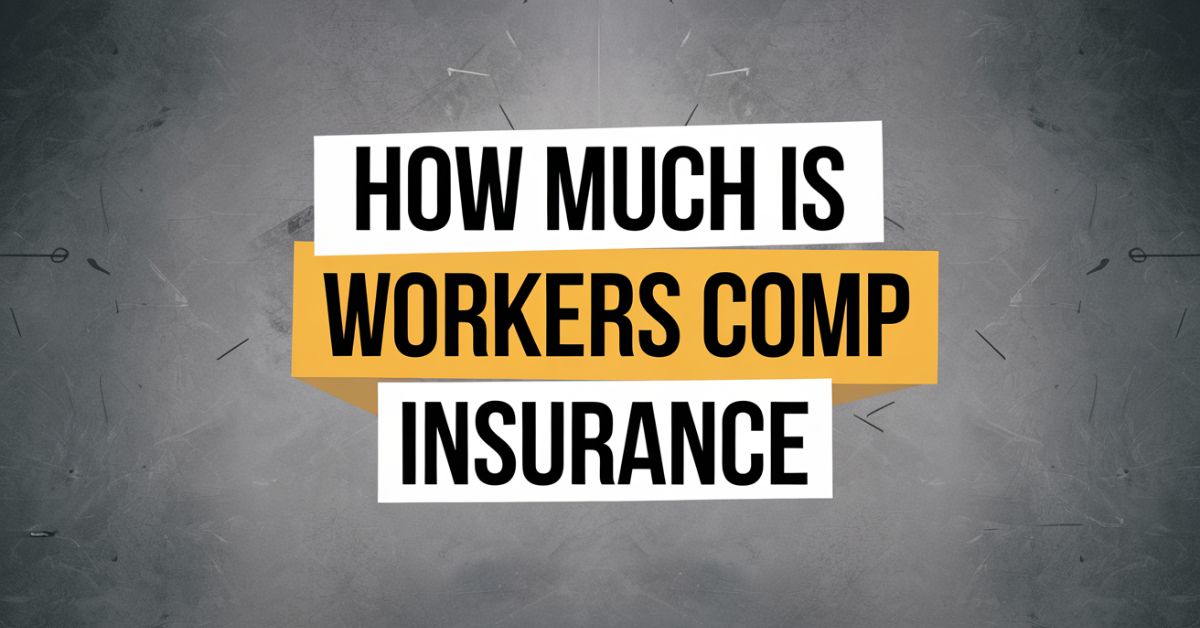Workers’ comp insurance is a type of coverage that helps employees who get hurt at work. It pays for medical bills and lost wages when workers can’t work due to injuries. This insurance is required by law in most states for businesses with employees.
Have you ever wondered what happens if you get hurt on the job? Who pays for your medical care? How do you make money if you can’t work? These are important questions for every worker.
They answers these questions. It protects both workers and employers. This article will explain how it works, what it covers, and why it’s so important in today’s workplace.
What is Workers’ Comp Insurance?
Workers’ comp insurance is a safety net for employees. It helps when they get hurt or sick because of their job. This insurance covers medical costs and pays part of their wages while they recover. It’s a way to make sure workers don’t lose everything if something bad happens at work.
Comp insurance is different from other types of insurance. It’s not like health insurance that covers all illnesses. It only covers problems that happen because of work. For example, if you fall off a ladder at work, this would help. But if you get a cold at home, it won’t.
Most states require businesses to have comp insurance. This is to protect workers and companies. Without it, workers might sue their employers for accidents. With this, workers get help quickly without going to court. This makes things easier for everyone.
How Does Workers’ Comp Insurance Work?
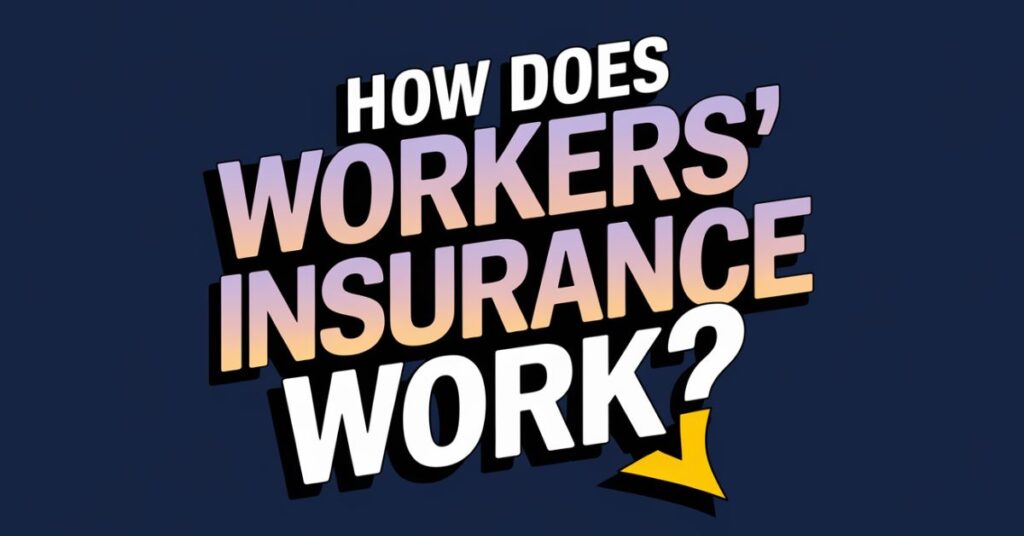
When a worker gets hurt on the job, they tell their boss right away. The boss then contacts the comp insurance company. The insurance company looks at what happened and decides if it’s covered. If it is, they start paying for the worker’s medical care.
It covers many types of care. It pays for doctor visits, hospital stays, and medicine. It also covers physical therapy if the worker needs it to get better. The goal is to help the worker recover and return to work as soon as possible.
If the worker can’t work while they heal, it helps with money too. It usually pays about two-thirds of their regular wages. This helps the worker pay bills and buy food while they’re off work. The payments continue until the worker can go back to their job.
Benefits of Workers’ Comp Insurance
Workers’ comp insurance helps both employees and employers. How it benefits everyone:
- It covers medical costs for work-related injuries and illnesses.
- It provides partial wage replacement for injured workers.
- It protects employers from lawsuits by injured employees.
- It helps workers return to their jobs after recovery.
- It creates a safer workplace by encouraging injury prevention.
Types of Workers’ Comp Insurance Coverage
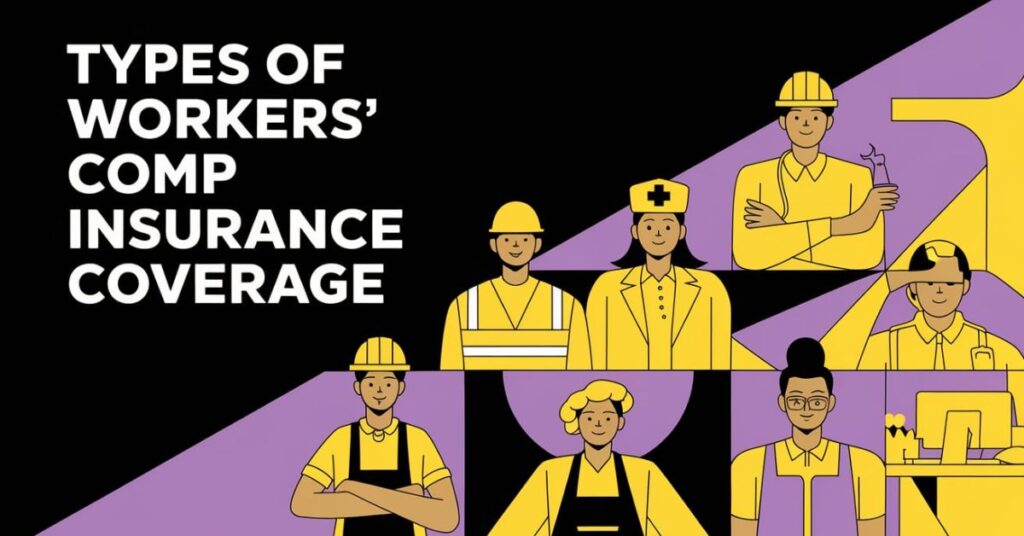
Workers’ comp insurance covers different things. Let’s look at the main types of coverage it provides.
1. Medical Care Coverage
This part of comp insurance pays for all necessary medical treatment. It includes doctor visits, hospital stays, and medications. If a worker needs surgery because of a work injury, comp insurance covers it. It also pays for ongoing care like physical therapy.
2. Disability Benefits
When a worker can’t do their job because of an injury, disability benefits help. These benefits pay part of the worker’s wages while they’re off work. There are different types of disability benefits. Some are for short-term injuries, others for long-term or permanent disabilities.
3. Rehabilitation Benefits
Sometimes, workers need help getting back to work. Rehabilitation benefits pay for things like job training. If a worker can’t do their old job, these benefits help them learn new skills. The goal is to help the worker find a new job they can do.
4. Death Benefits
If a worker dies because of a job-related injury or illness, comp insurance helps their family. It pays for funeral costs and gives money to the worker’s dependents. This helps the family cope with the loss of income.
5. Supplemental Benefits
Some states offer extra benefits through comp insurance. These might include money for travel to doctor appointments. They could also include help with things like home modifications for disabled workers.
How Much Does Workers’ Comp Insurance Cost?
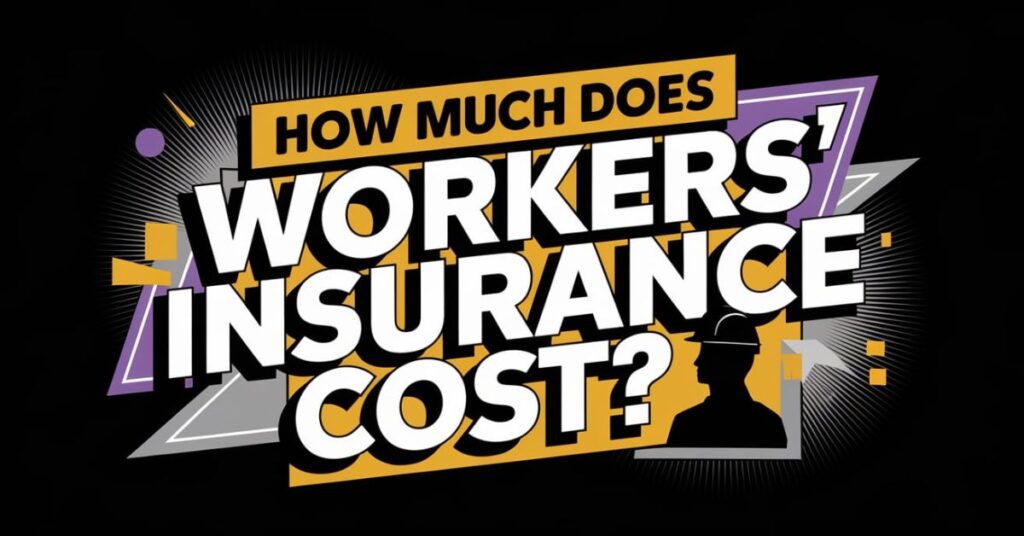
The cost of comp insurance varies. It depends on several factors. Let’s look at what affects the price.
The type of work a business does is important. High-risk jobs, like construction, cost more to insure. Office jobs are usually cheaper because there’s less risk of injury.
The size of the company matters too. More employees mean more potential for injuries. So bigger companies often pay more for comp insurance.
A company’s safety record also affects the cost. If a business has few accidents, their insurance might be cheaper. But if they have many claims, the price goes up.
Factors That Affect Workers’ Comp Insurance Rates
Some factors that can change comp insurance rates:
| Factor | Effect on Rates |
| High-risk industry | Increases |
| Good safety record | Decreases |
| Many employees | Increases |
| Few past claims | Decreases |
| State regulations | Varies |
Who Needs Workers’ Comp Insurance?
Most businesses need comp insurance. It’s the law in most states. But there are some exceptions. Let’s look at who usually needs this insurance.
Any company with employees typically needs comp insurance. This includes small businesses, big corporations, and nonprofits. Even if a business has only one employee, they might need coverage.
Some states have special rules for certain types of workers. For example, farm workers or domestic helpers might not be covered. Independent contractors usually don’t get comp insurance from the companies they work for.
Read this article: How Much Is Urgent Care With Insurance?
Exceptions to Workers’ Comp Insurance Requirements
There are some cases where comp insurance isn’t required. These can vary by state. It’s important to know the rules where you live or work.
Very small businesses sometimes don’t need it. For example, a business with only one or two employees might be exempt. But this isn’t true in all states. Some states require coverage no matter how small the business is.
Some types of workers aren’t covered by comp insurance. These often include volunteers, some seasonal workers, and certain government employees. These groups might have other types of protection instead.
How to Get Workers’ Comp Insurance?
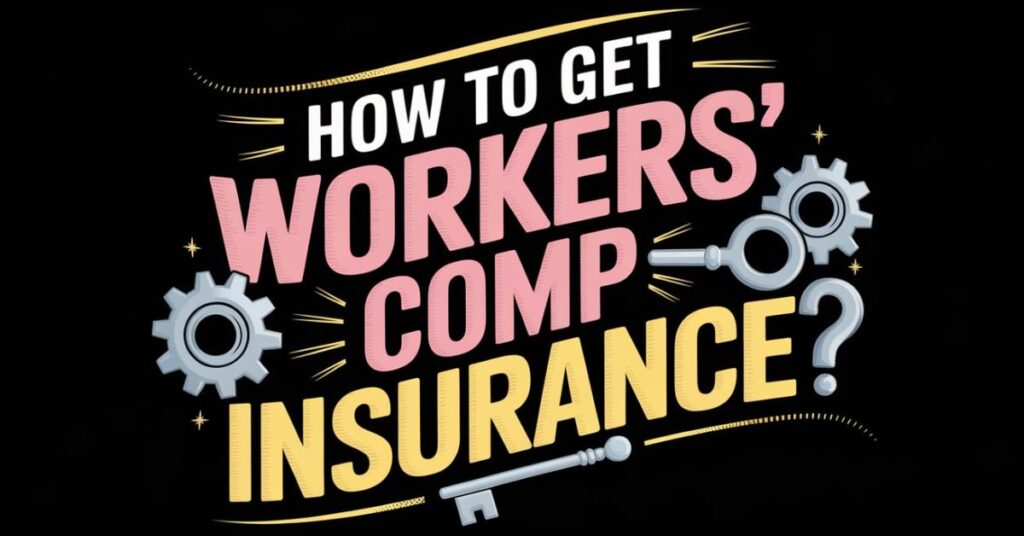
Getting it is an important step for businesses. How companies can get this coverage.
The first step is to check state laws. Each state has different rules about comp insurance. Businesses need to know what’s required where they operate. They can ask their state’s labor department for information.
Next, businesses should shop around for insurance. They can contact insurance companies directly. Or they can work with an insurance agent. Agents can help find the best deal and explain different options.
Some states have their own comp insurance programs. In these places, businesses might need to buy insurance through the state. Other states let businesses choose private insurance companies.
Choosing the Right Workers’ Comp Insurance Provider
Picking the right comp insurance provider is important. Some things to consider.
1. Financial Stability
Choose an insurance company that’s financially strong. This means they’ll be able to pay claims when needed. Look for companies with good ratings from financial rating agencies.
2. Customer Service
Good customer service is crucial. The insurance company should be easy to contact. They should answer questions quickly and handle claims efficiently.
3. Industry Experience
Some insurance companies specialize in certain industries. It can be helpful to choose a provider that understands your type of business. They might offer better advice and service.
Common Workers’ Comp Insurance Claims
Comp insurance covers many types of injuries and illnesses. Some common claims:
- Slips, trips, and falls are frequent causes of workplace injuries.
- Back injuries often happen when workers lift heavy objects.
- Repetitive motion injuries can occur from doing the same task over and over.
- Cuts and burns are common in some industries like restaurants.
- Vehicle accidents can happen to workers who drive for their jobs.
Preventing Workplace Injuries
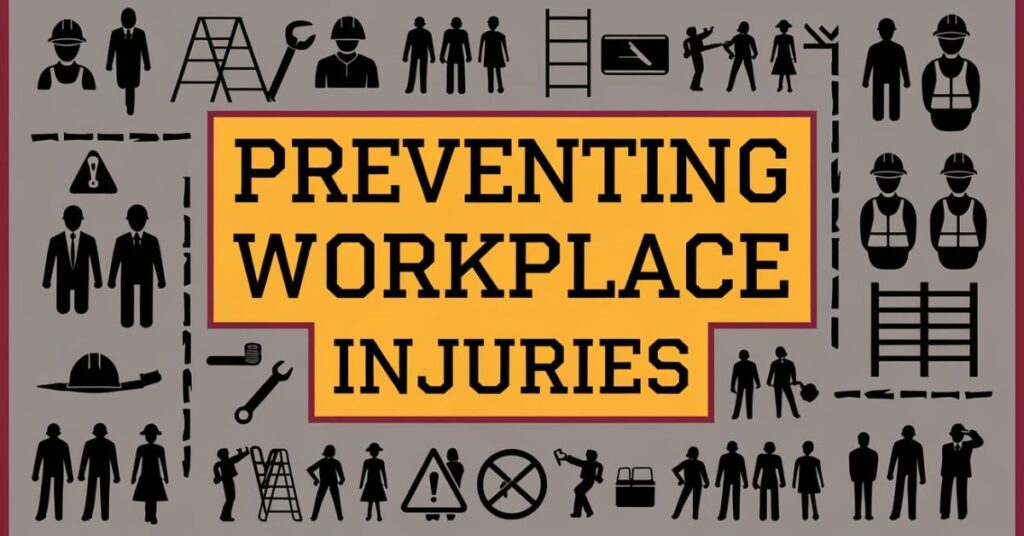
Preventing injuries is better than dealing with them after they happen. How businesses can make workplaces safer.
Training is key to preventing injuries. Workers should know how to do their jobs safely. They should understand the risks and how to avoid them. Regular safety meetings can help keep everyone aware of potential dangers.
Good equipment and tools are also important. Businesses should provide the right gear for each job. This includes things like safety goggles, gloves, and proper footwear. Equipment should be kept in good condition and replaced when needed.
Creating a culture of safety helps too. This means everyone in the company cares about staying safe. Workers should feel comfortable reporting unsafe conditions. Managers should take these reports seriously and fix problems quickly.
Final Words
Workers’ comp insurance is a crucial part of the modern workplace. It protects both workers and businesses. When injuries happen, it provides needed support and care.
Understanding it is important for everyone. Workers should know their rights and what to do if they’re hurt. Employers need to follow the law and choose the right coverage. By working together, we can create safer workplaces for all.
Remember, the goal of comp insurance is to help injured workers recover. It’s not just about money. It’s about getting people back to health and back to work. With the right approach, comp insurance can make a big difference in people’s lives.
Frequently Asked Questions
Do all businesses need workers’ comp insurance?
Most do, but rules vary by state. Very small businesses might be exempt in some places.
What does workers’ comp insurance cover?
It covers medical care for work-related injuries and illnesses, and partial wage replacement during recovery.
Can I sue my employer if I’m hurt at work?
Usually not if they have comp insurance. The insurance is designed to avoid lawsuits.
How long does workers’ comp coverage last?
It lasts as long as needed for recovery, but there may be limits for long-term disabilities.
Do part-time workers get comp insurance coverage?
Usually yes, but it depends on state laws and how many hours they work.

David: Seasoned financial expert with 5 years in banking and investments.
Skilled in personal finance, market analysis, and wealth management. Empowers clients to achieve financial goals.

